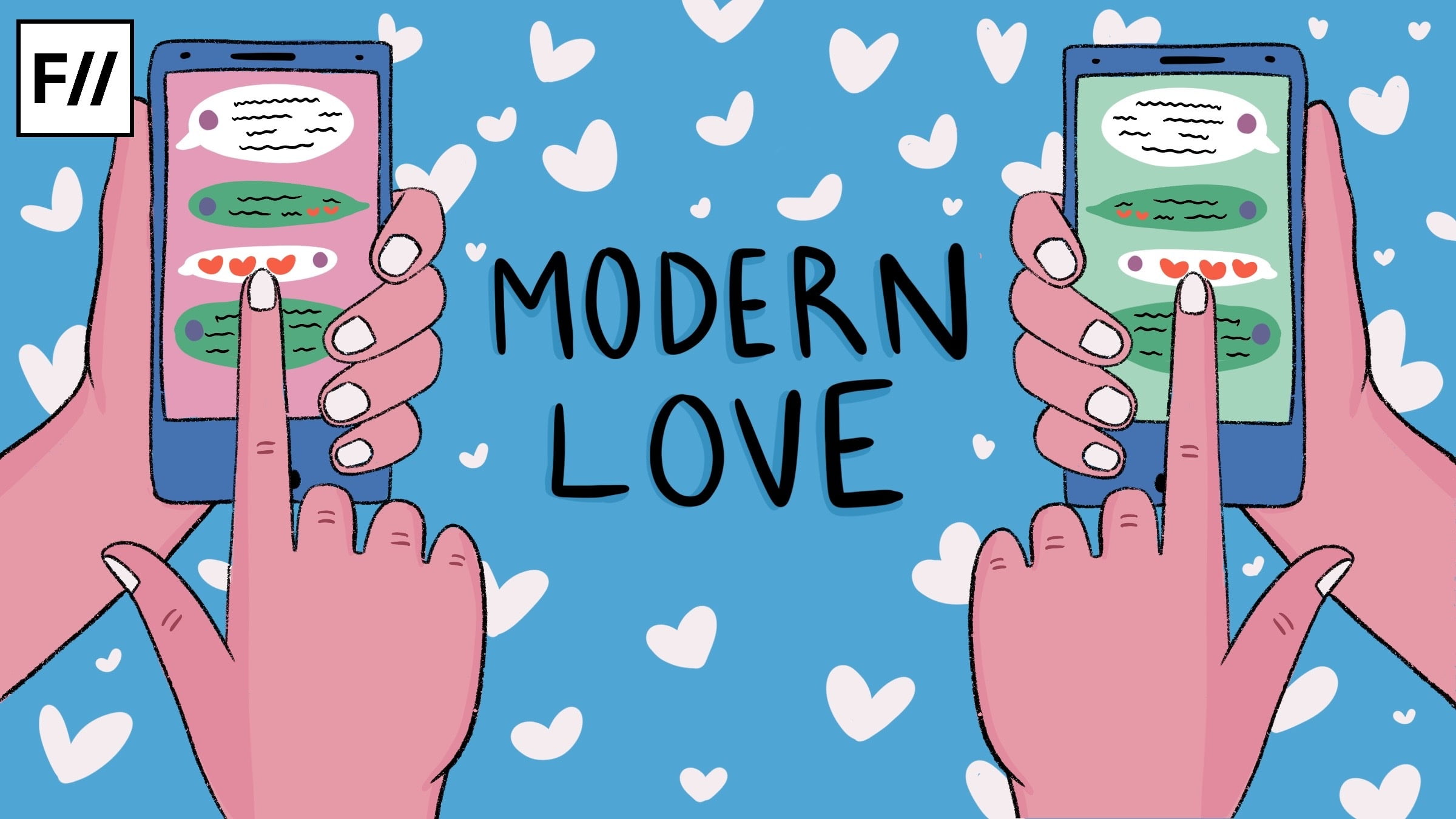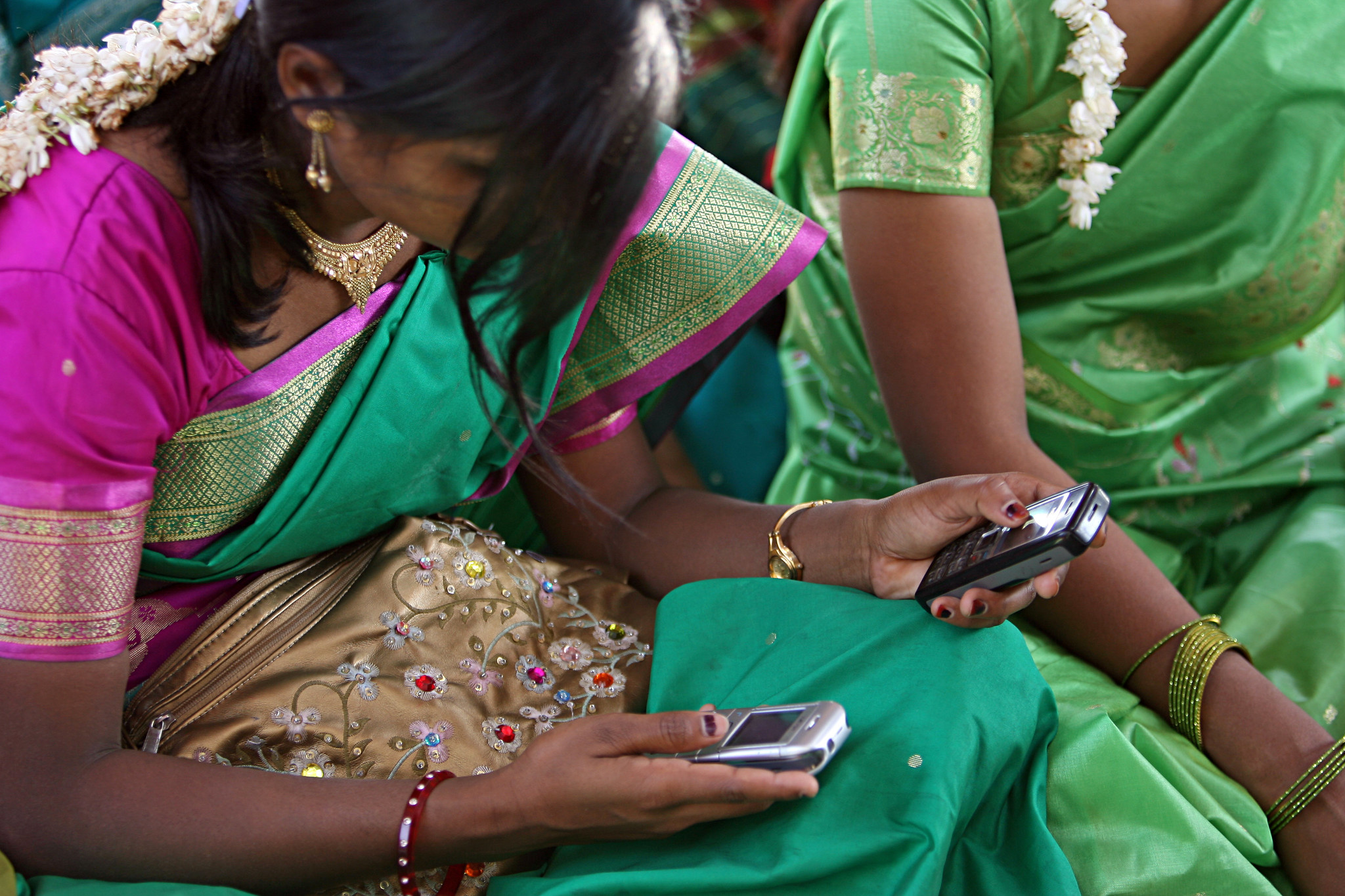Editor’s Note: This month, that is December 2020, FII’s #MoodOfTheMonth is Modern Love and Relationships, where we invite various articles to highlight how love has been fundamental in our lifeworlds and how these experiences and perceptions around love are shaped by our identities in a modern Indian context. If you’d like to share your article, email us at pragya@feminisminindia.com.
Ah, modern love. In the era of Instagram profiles and Tinder accounts, in the age of “which of my photos make me look most like a snacc”, in the zamana where our lives must look like a film reel and only put our best joke forward at all times, one wonders where the bygone era of “all encompassing, forgiving love” has disappeared. But what if we say that what we see as “love”, as teenagers and young adults in 2020, is nothing but a farce, and that true, deeper love is more about the way you break free from the need to perform or be someone you’re not?
In this little piece, I’ll try and break down what I’ve seen, listened to, learnt both from experience and from people who’ve lived quite a few more decades than I have on this floating rock, to understand how the dynamics of performance in love has changed.
I’m also acknowledging that I’m obviously looking at it with rose tinted glasses, without accounting for those members of the internet who deceive people with fake information, or worse, abuse children through deception online, but that discussion is beyond the scope of this piece, and must be discussed separately. Let’s stick to a basic framework of 2 adults, either single or dating, and what modern love and the internet offer them today.
What Has Modern Love Offered Us?
Well, for starters, instantaneity. Everything, every form of communication is at the tips of your fingers. Modern love has made loving from afar easier, displays of affection more innovative, and finding love infinitely simpler. One is able to find love from the other side of the world, the internet democratising communication to ensure that lovers (old and new, young and old) have a way to continually connect or have the opportunity to connect, if they so desire it.
Modern love has made loving from afar easier, displays of affection more innovative, and finding love infinitely simpler.
While instantaneity is a boon, the downside is that it becomes expected. It stops becoming a gift that we acknowledge we have, rather we begin to encroach upon the others’ agency of what they do with their time. As Rega Jha beautifully put it in her article, it creates a “Culture of Availability”, creating a false sense of urgency that telecom companies and we as creatures, conditioned to be impatient, rely on for immediate answers.
Where Are We Going Wrong?
I can’t generalise what kind of love everyone desires, or try to put it into buckets. I’m no expert, and neither my age nor my experience warrants such broad sweeping statements. But why modern love is accused as being superficial, is something that had piqued my interest when this prompt popped up in my email.
One answer that blared through all of the various conversations I’ve had with people—the commodification of love. We’ve designed our love as being a performance, a show of supposed compatibility and social appropriateness about tokens of romance.
We dress up to look good for the ‘gram, we put pressure on our partners (and ourselves!) to accommodate for our never ending desire to be externally validated; through the grand vacation pictures we upload or the cheesy soft toys or lavish gifts we bestow upon each other. We thrive on all the “awws” and the “how cute!” comments we get when upload a picture, and validate a relationship based on the number of people that invested 3 seconds of their time to swipe up on your story and press the “heart” react.
You’re going to say that I sound like I’m ranting about other peoples’ expression of love. But indulge me for a second—where does this continual social display of affection start to become a little more difficult to swallow? Why? Because it has the power to distort our notion of “love” and what we expect from love, both now and in the future. These grand displays of affection and IG campaigns of couples travelling the world with their hands outstretched (you and I both know you know what I’m talking about) begin to encroach upon our perception of what we expect from a partner, and what an ideal partner must behave like.
One answer that blared through all of the various conversations I’ve had with people—the commodification of love. We’ve designed our love as being a performance, a show of supposed compatibility and social appropriateness about tokens of romance.
We seek aesthetic and socially impressive relationships, ones that scream a transactional contract between the relationship and society. Everyday lovers like myself begin to dream of “true love” as being one certain way, a picture perfect relationship with a feminist “woke boi” who has impeccable taste in shirts, flawless skin and constantly pandering to the world’s idea of perfect.
Also read: Self Love Even When It Seems Impossible
But where is my idea of perfect? Did I forget to look for it as society handed me a prescription of the ideal partner?
We not only become reliant on social ideals of a perfect partner, but we also get affected by what society begins to shun away in modern love. Vulnerability and expression of emotion has gone for a toss—by classifying any expression of affection (especially by men) as “simp” behaviour, we begin to stigmatise male expressions of affection and reward “aloofness”. This is further incentivised by the myriad possibilities of other partners we see, whether it be through social media or through dating apps—we are mesmerised by the marketplace, and continue to strive to find the “choicest” of partners from this giant enterprise rather than healing ourselves from our past, or working to better ourselves as people.
The transactional nature of DM’ing indicating sexual favours followed by ghosting, racking up your “body count” or stalking your exes’ every move on social media—these are just some of the mystical phenomena we’ve observed (and admittedly, done) as participants of modern love.
Yet, there is hope.
There is hope as long as we see these things at face value, and try not to let them define our lives. There is hope as long as you continue to keep your hearts open to learning from new people you meet and the experiences you share. I hope that every one finds love that makes them feel whole, complete and not trying to push them to be something they aren’t. I want for everyone to find someone to enjoy the banal with, to have engaging conversations with and to broaden your horizons with, if they so choose to engage in it.
Also read: Love Azad: A Rising Campaign Against ‘Love Jihad’
Because at the end of the day, romance—whether it be old school or modern—should be the one place where we are appreciated as we are.
About the author(s)
Mythily is a student at IIM Indore with an interest in cinema, South Asian culture and music. Having grown up abroad, she often juxtaposes her experiences of a multicultural upbringing and college life in India. You will most often find her with a protein shake humming AR Rahman songs, or adding to her never-ending wishlist on Amazon.





I am so glad that you brought this up! This had been brewing in my head for a long time and you have articulated the idea of performance and approval beautifully. We are suspended in a technology driven, transactional and commodified. And even if one wants to be vulnerable and break away from this, it becomes extremely difficult to receive such reciprocation. Then it becomes a vicious cycle of everyone being transactional and a few seconds of dopamine rush by getting likes/social approval.